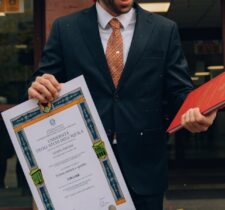Is child abuse a felony? This is a critical question with legal and moral implications. Child abuse is a serious offense that can lead to severe consequences for the abuser and long-term trauma for the victim. Understanding how the law categorizes child abuse, the legal process involved, and the penalties associated with such crimes is crucial for anyone seeking to protect children or understand the legal ramifications.
In this article, we will explore whether child abuse is considered a felony, the legal definitions, the types of abuse, and the legal processes that follow an abuse allegation. We will also address how child protective services (CPS) operate in such cases and provide resources for prevention and support.
Understanding Child Abuse: Definition and Types
What Is Child Abuse?
Child abuse is any action by a parent, caregiver, or other person that causes harm or the potential for harm to a child. It encompasses various forms, including physical, emotional, and sexual abuse, and neglect. Child abuse laws vary by state, but the core principle remains the same—protecting the well-being and safety of children.
Legally, child abuse is defined as actions or failures to act that result in a child’s physical or mental harm, sexual abuse, exploitation, or neglect. The law aims to hold perpetrators accountable and ensure the protection of children.
Types of Child Abuse
- Physical Abuse: Inflicting physical harm or injury on a child, such as hitting, burning, or shaking. This type of abuse often leaves visible marks but can also include actions that cause internal injuries.
- Emotional/Psychological Abuse: Involves actions that harm a child’s emotional and mental health. This can include verbal assault, humiliation, isolation, and threats, leading to long-term psychological damage.
- Sexual Abuse: Engaging a child in sexual acts, exploitation, or exposure to inappropriate sexual material. This is one of the most severe forms of abuse, with significant legal consequences.
- Neglect: The failure to provide essential care, including food, shelter, medical care, and supervision. Neglect can be just as harmful as physical abuse, affecting a child’s development and health.
Is Child Abuse Considered a Felony?
The Legal Classification of Child Abuse
Yes, child abuse can be classified as a felony, depending on the severity and circumstances of the abuse. While some cases of child abuse might be charged as misdemeanors (for less severe offenses), many instances result in felony charges, especially when the abuse leads to serious physical harm, or emotional trauma, or involves repeated offenses.
Felonies are more serious crimes with harsher penalties than misdemeanors. In the context of child abuse, actions that cause significant injury, involve sexual misconduct or demonstrate a pattern of abuse is typically prosecuted as felonies.
Factors That Determine Whether Child Abuse Is a Felony
Several factors influence whether child abuse is charged as a felony:
- Severity of Harm: If the abuse results in serious bodily injury, prolonged suffering, or long-term damage, it is more likely to be classified as a felony.
- Intent: Cases where the abuser intentionally causes harm, rather than accidentally, are treated more seriously.
- Use of Weapons or Dangerous Objects: Using objects to inflict harm on a child can lead to felony charges.
- Prior History of Abuse: Repeat offenses can escalate charges to felony status, even if previous incidents were treated as misdemeanors.
Legal Consequences of Felony Child Abuse
Penalties for Felony Child Abuse
The penalties for felony child abuse can be severe, reflecting the seriousness of the crime. Those convicted may face:
- Imprisonment: Depending on the severity, sentences can range from several years to life in prison. Sexual abuse of a minor can lead to even harsher penalties, including mandatory minimum sentences.
- Fines: Convicted individuals may be ordered to pay substantial fines as part of their sentencing.
- Probation: In some cases, courts may impose probation, requiring the offender to follow strict conditions, such as attending counseling or anger management programs.
- Mandatory Counseling and Rehabilitation: Courts often mandate participation in programs designed to address abusive behavior and prevent future offenses.
Aggravating Factors That Can Increase Penalties
Certain factors can lead to harsher sentences for those convicted of child abuse, including:
- Abuse Resulting in Serious Bodily Harm: Injuries that cause long-term damage or disability can lead to more severe penalties.
- Abuse of a Child Under a Certain Age: Crimes involving very young children are often treated more harshly.
- Pattern of Abuse: Demonstrating a consistent pattern of abusive behavior over time can lead to enhanced charges and penalties.
Differences Between State and Federal Laws
While state laws primarily govern child abuse cases, there are situations where federal law may come into play, such as cases involving child trafficking or abuse that crosses state lines. Federal penalties for child abuse can be even more stringent than state-level penalties, emphasizing the protection of children across the nation.
The Legal Process for Child Abuse Cases
Reporting Child Abuse
Child abuse can be reported by anyone who suspects a child is being mistreated, including teachers, healthcare professionals, neighbors, and family members. In many states, certain professionals are mandated reporters, meaning they are legally required to report any suspicions of abuse to authorities.
Investigation of Child Abuse Allegations
Once an abuse report is made, authorities, including child protective services (CPS) and law enforcement, will investigate the claims. This investigation can include interviews with the child, parents, and other relevant individuals, as well as medical examinations if necessary.
Arrest and Charges
If the investigation finds evidence of abuse, the suspected abuser may be arrested and formally charged. The charges depend on the evidence gathered, the severity of the abuse, and other aggravating factors.
Court Proceedings and Trial
During a trial, both the prosecution and defense will present their cases. Evidence may include witness testimony, medical records, and expert opinions. The goal is to determine whether the accused is guilty of the charges, and if so, to what extent.
Sentencing and Appeal
If found guilty of felony child abuse, the offender will be sentenced according to the severity of the crime and any aggravating factors. There may be an opportunity to appeal the decision, but this requires a legal basis, such as procedural errors during the trial.
The Role of Child Protective Services (CPS)
How CPS Works in Child Abuse Cases
Child Protective Services (CPS) plays a crucial role in investigating child abuse claims and ensuring the safety of children. They assess the child’s living conditions, conduct interviews, and determine if intervention is needed. In severe cases, CPS may recommend that the child be temporarily or permanently removed from the home.
When CPS Can Remove a Child from the Home
CPS can intervene and remove a child if they believe the child’s safety is at risk. This can be a temporary measure while investigations are ongoing or a more permanent solution if the child’s environment is deemed unsafe.
Prevention and Support: Resources for Families
Preventing Child Abuse
Preventing child abuse starts with education and awareness. Parents and caregivers can learn about stress management, positive discipline strategies, and healthy communication to create a safe environment for children. Community programs and parenting classes can also provide valuable resources and support.
Resources for Victims and Families
There are numerous organizations and hotlines available to support victims of child abuse and their families:
- National Child Abuse Hotline: A confidential service offering help and support (1-800-4-A-CHILD).
- Prevent Child Abuse America: Provides resources and advocacy for preventing child abuse.
- Local Support Services: Various community organizations offer counseling, legal assistance, and emergency shelter.
Conclusion
Is child abuse a felony? In many cases, yes. Child abuse is a serious crime that can lead to felony charges, especially when the abuse involves severe harm, sexual misconduct, or repeated offenses. The legal process is designed to protect children and hold offenders accountable. If you suspect child abuse or are dealing with allegations, it is crucial to seek professional legal advice and support.
FAQ’s
Q1: Can child abuse be a misdemeanor instead of a felony?
- Yes, child abuse can be charged as a misdemeanor in less severe cases, such as minor injuries. However, more serious incidents are prosecuted as felonies.
Q2: What are the long-term consequences of a felony child abuse conviction?
- Long-term consequences include a criminal record, loss of custody rights, difficulty finding employment, and restrictions on working with children.
Q3: Can someone be charged with child abuse even if there is no physical harm?
- Yes, emotional abuse, neglect, and endangerment can lead to child abuse charges even if no physical harm is evident.
Q4: How long does a child abuse investigation take?
- The duration of an investigation varies depending on the complexity of the case, the cooperation of witnesses, and other factors. It can range from a few days to several months.








